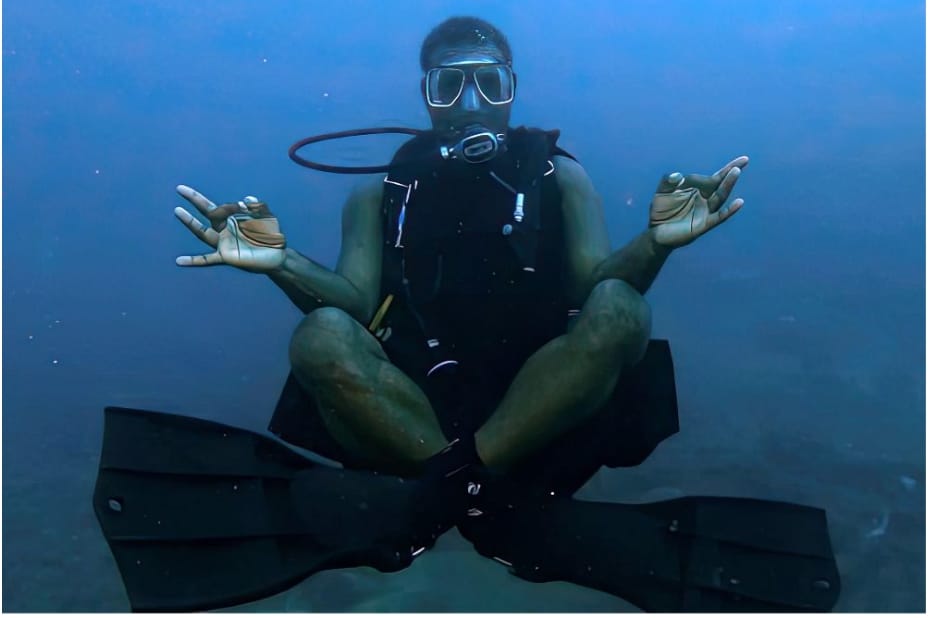
Scuba diving is often seen as a thrilling adventure activity, one that allows people to explore underwater worlds, encounter exotic marine life, and experience a sense of weightlessness. However, beyond the sheer excitement, scuba diving also offers an array of significant health benefits. From enhancing physical fitness to promoting mental well-being, this underwater sport has much more to offer than just an unforgettable experience. Here’s a dive into the transformative health benefits of scuba diving.
1. Cardiovascular Fitness and Muscle Strength
When you’re underwater, even the simplest movements require your muscles to work harder than they do on land, because of the resistance of the water. Swimming against water resistance can improve cardiovascular endurance and muscle strength, particularly in the legs, back, and core. Moving through water requires continual movement and, as such, promotes calorie burning and enhances cardiovascular health, similar to other aerobic exercises.
For those looking to maintain or improve their heart health, scuba diving can be a powerful and enjoyable workout. As divers work to control their breathing, their heart rate can slow down, helping to reduce blood pressure and improve overall cardiovascular health.
2. Improved Breathing and Lung Capacity
Proper breathing techniques are a crucial part of diving, as divers learn to take long, deep breaths to conserve oxygen and maintain buoyancy. This breathing technique not only allows for longer dive times but also has health benefits above water. Deep breathing helps expand lung capacity, improve oxygen intake, and enhance overall respiratory efficiency.
Controlled breathing also activates the body’s parasympathetic nervous system, which reduces stress levels and can alleviate anxiety. This benefit extends beyond the water, allowing divers to use these techniques to manage stress in their daily lives.
3. Enhanced Flexibility and Mobility
Scuba diving encourages a wide range of motion, especially as divers manoeuvre their bodies through water. The constant movement required underwater helps improve joint mobility and muscle flexibility. The gentle resistance of water also provides a low-impact environment, ideal for individuals who may struggle with high-impact exercises on land, such as running or heavy lifting.
Over time, the mobility and flexibility gained through scuba diving can support joint health, especially for those with arthritis or mobility issues, as the water’s buoyancy eases pressure on joints.
4. Mental Clarity and Stress Reduction
The ocean has long been associated with tranquillity and calmness. When scuba diving, the mind naturally shifts focus, paying attention to the sounds of bubbles, the beauty of marine life, and the serenity of the ocean. This immersion in a completely different environment has a profound effect on stress levels, reducing anxiety and promoting mental clarity.
Studies have shown that time spent near or in water can reduce stress-related hormones such as cortisol. This sense of tranquillity can carry over post-dive, helping divers feel relaxed and more focused. The combination of controlled breathing, a slower heart rate, and a calming environment creates a natural state of mindfulness that supports mental well-being.
5. Boosted Immune System and Vitamin D Absorption
Sunlight exposure is a natural and essential source of vitamin D, which strengthens bones and supports the immune system. Divers often spend time on boats or at dive sites where they get sunlight exposure. This enhances vitamin D levels, improving immune function, mood, and bone health.
For those diving in warm waters, this exposure to natural sunlight boosts the immune system while reducing inflammation, helping the body resist diseases.
6. Enhanced Spatial Awareness and Coordination
Underwater, divers must constantly be aware of their surroundings and coordinate their movements. Managing buoyancy, positioning in relation to others, and manoeuvring around corals and marine life all require spatial awareness and control. These skills contribute to improved hand-eye coordination, balance, and spatial reasoning.
Enhanced coordination and spatial awareness can have lasting effects, contributing to better body control and balance in everyday activities.
7. Social Benefits and Confidence Building
Scuba diving is often done in groups or pairs, fostering social interaction and creating a sense of community. The trust and camaraderie built among dive buddies contribute to positive social interactions and support networks. Additionally, learning to dive, mastering the equipment, and accomplishing underwater challenges can enhance self-confidence.
The ocean has an awe-inspiring quality that fosters a sense of accomplishment and wonder, leading to increased self-esteem and a more positive outlook.
8. Pain Relief and Support for Physical Recovery
Warm saltwater can be soothing for aching muscles and joints, offering natural pain relief. Scuba diving can be particularly beneficial for people recovering from injuries, as the water provides a supportive environment for low-impact exercise. The buoyancy in water minimises strain on joints and allows for gentle muscle engagement.
Many divers with chronic pain conditions, such as arthritis, report pain relief due to the combination of movement, relaxation, and warm saltwater immersion.
9. Improved Sleep Quality
Physical exertion, relaxation, and exposure to fresh air and sunlight can all contribute to better sleep. Many divers report improved sleep after a day of diving, likely due to the physical activity and relaxation that come with the sport. This increase in physical activity, along with the mental clarity achieved during dives, can help regulate sleep patterns and promote a more restful night.
Conclusion
Scuba diving is far more than an adventure—it’s a holistic workout for the mind, body, and spirit. From strengthening the heart to reducing stress and improving lung capacity, scuba diving can enhance overall health in unique and powerful ways. As you explore the underwater world, you’re not only uncovering nature’s hidden treasures but also discovering the depths of your own health and well-being. Whether you’re a seasoned diver or considering taking the plunge, scuba diving offers a multitude of benefits that make it more than worth exploring.

Leave a Reply